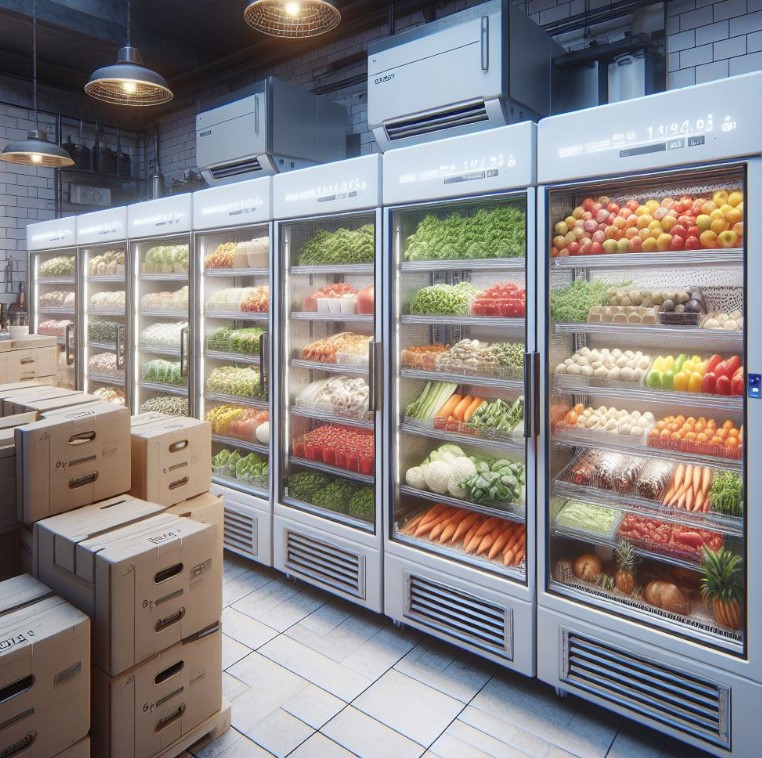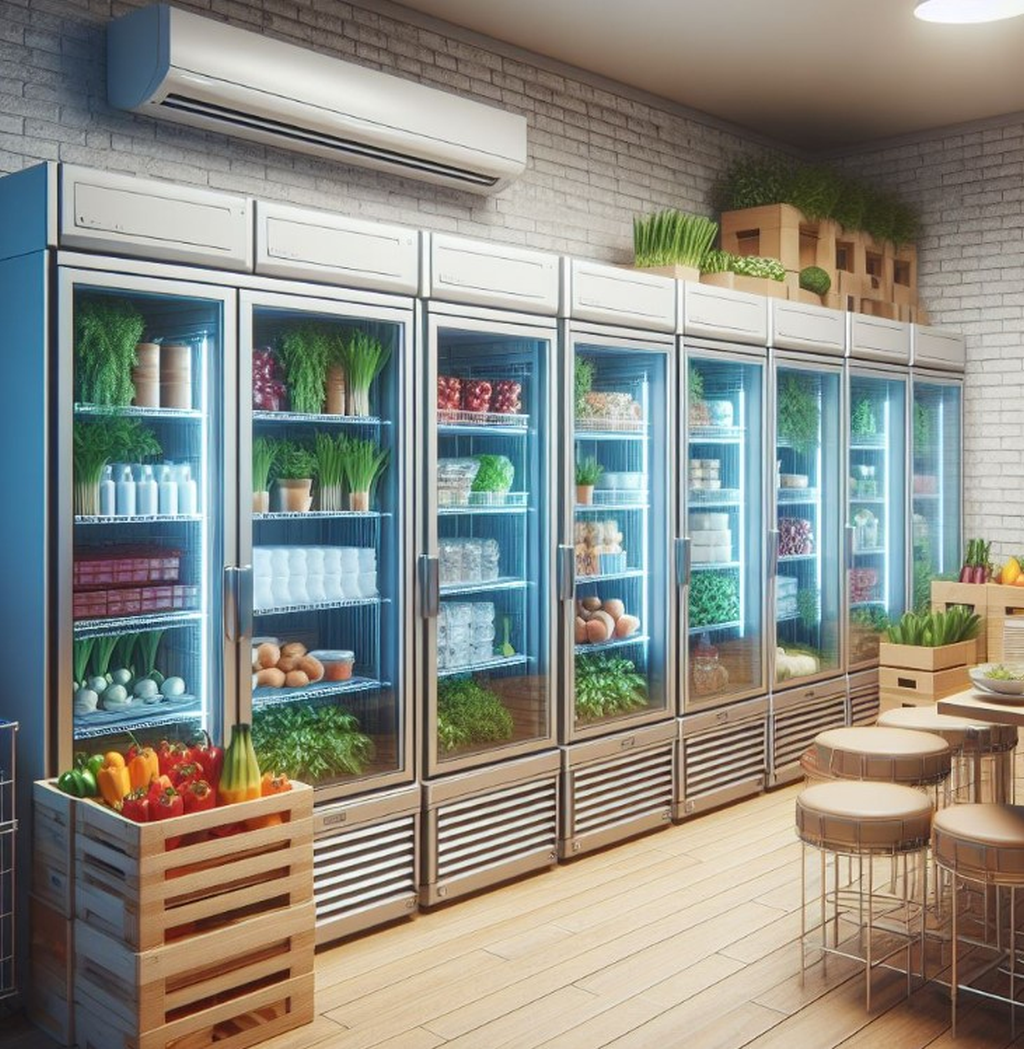The importance of cooling systems in the catering sector
 In the fast-paced world of the catering sector, where precision, efficiency, and food safety are paramount, the significance of proper cooling systems cannot be overstated. From preserving ingredients to maintaining optimal storage conditions and ensuring food safety compliance, the role of advanced cooling systems is integral to the success of catering businesses. This article explores the multifaceted importance of cooling systems in the catering sector, highlighting their impact on food quality, operational efficiency, and overall customer satisfaction.
In the fast-paced world of the catering sector, where precision, efficiency, and food safety are paramount, the significance of proper cooling systems cannot be overstated. From preserving ingredients to maintaining optimal storage conditions and ensuring food safety compliance, the role of advanced cooling systems is integral to the success of catering businesses. This article explores the multifaceted importance of cooling systems in the catering sector, highlighting their impact on food quality, operational efficiency, and overall customer satisfaction.

Food safety compliance
The heart of any catering operation lies in its ability to preserve perishable ingredients at the peak of freshness. Cooling systems play a pivotal role in this process, regulating temperatures to slow down bacterial growth, enzymatic reactions, and the deterioration of food quality. Whether it's fresh produce, dairy, or proteins, maintaining precise temperatures in refrigerators and walk-in coolers is crucial to extending the shelf life of ingredients and ensuring that each dish is crafted with the finest components. Stringent food safety regulations are a cornerstone of the catering sector, and cooling systems play a central role in meeting and exceeding these standards. Maintaining proper temperatures throughout the food storage and preparation process is essential for inhibiting the growth of harmful bacteria that can lead to foodborne illnesses. Cooling systems equipped with advanced temperature control mechanisms provide a reliable means of achieving and maintaining the required safety standards, safeguarding both the reputation of the catering business and the health of its customers.
Optimal conditions for food preparation
Beyond storage, cooling systems contribute significantly to the efficiency of food preparation in catering establishments. Commercial refrigerators and freezers allow chefs to organize ingredients systematically, ensuring easy access during busy service hours. The availability of a well-designed and properly functioning cold storage infrastructure minimizes food waste, streamlines the cooking process, and enhances the overall operational efficiency of the kitchen. The delicate balance of flavors and textures in culinary creations can be easily compromised without proper cooling systems. Certain ingredients, such as delicate herbs, greens, and desserts, require precise temperatures to maintain their freshness and appeal. Inadequate cooling can lead to wilting, discoloration, or changes in texture, ultimately affecting the sensory experience of the final dish. By investing in sophisticated cooling systems, catering businesses can preserve the integrity of each ingredient, ensuring that the culinary vision is translated onto the plate with precision.
Efficiency and sustainability
Catering often involves the presentation of food in buffet-style or open-kitchen settings. Cooling systems extend their importance beyond the kitchen to maintain optimal temperatures in display and serving areas. From salad bars to dessert stations, these systems ensure that perishable items are presented attractively while adhering to food safety guidelines. The visual appeal and freshness of displayed items contribute to a positive customer experience, enhancing the overall reputation of the catering business. In an era where environmental sustainability is a growing concern, modern cooling systems offer catering businesses an opportunity to align with eco-friendly practices. Energy-efficient refrigeration units not only reduce operational costs but also minimize the carbon footprint of the business. Investing in sustainable cooling solutions reflects a commitment to responsible business practices, appealing to environmentally conscious customers and positioning the catering establishment as a socially responsible player in the industry. Consistency is a key factor in the catering sector, and cooling systems contribute to maintaining temperature uniformity across all storage and preparation areas. Advanced systems come equipped with features such as forced-air cooling, which ensures that temperatures remain consistent from top to bottom and side to side. This uniformity is critical in preventing hot spots or cold zones, guaranteeing that all ingredients receive equal attention in terms of preservation and freshness.

Customer satisfaction
Ultimately, the importance of proper cooling systems in the catering sector extends to the satisfaction of customers and the overall reputation of the business. Fresh, high-quality ingredients contribute to the creation of exceptional dishes, leaving a lasting impression on diners. In an industry where word of mouth and online reviews wield significant influence, a catering business that prioritizes proper cooling systems demonstrates a commitment to excellence, fostering customer trust and loyalty.
In the dynamic and demanding world of catering, where precision and quality are non-negotiable, the role of cooling systems is central to success. From preserving ingredients and ensuring food safety compliance to enhancing operational efficiency and customer satisfaction, these systems are the unsung heroes of the catering sector. As businesses continue to evolve, embracing advanced cooling technologies not only elevates the culinary experience but also positions the catering establishment as a leader in the industry, dedicated to delivering excellence in every aspect of its operation.